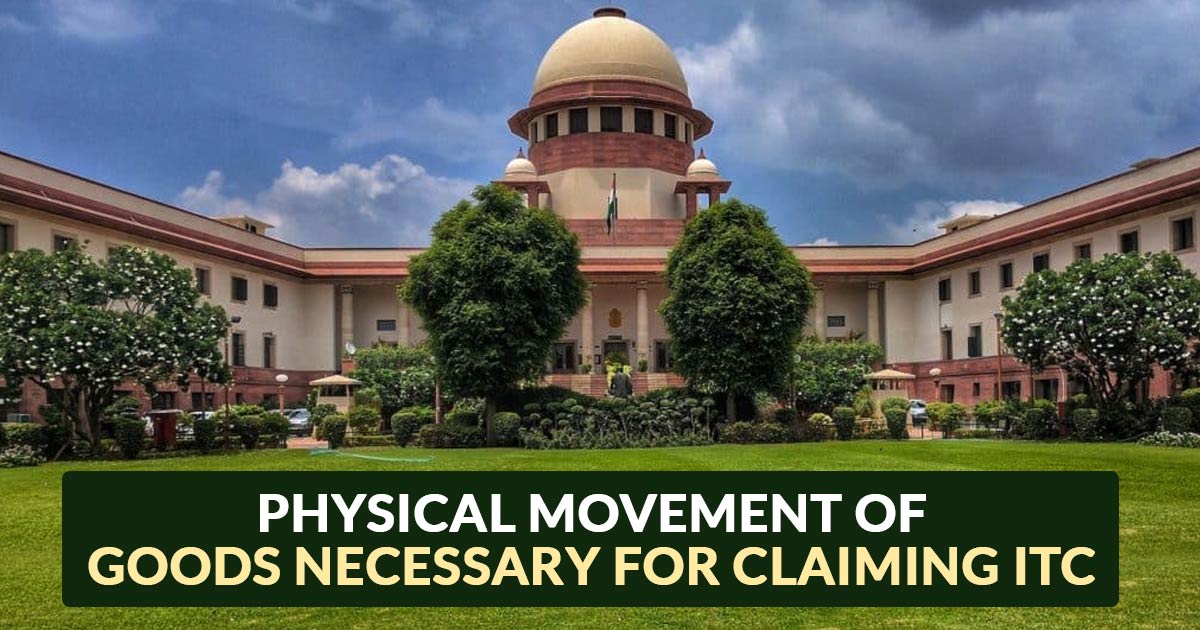
It’s terrible news for the sector since the Supreme Court ruled that simply producing an invoice and a check payment is inadequate to claim ITC (Input Tax Credit). Analysts believe despite this order is concerned with problems under Value Added Tax (VAT) regime, but is likely to have an influence on GST also.
The Assessing Officer was fully justified in refusing the ITC, which was upheld by the first Appellate Authority, in the absence of any additional cogent material, such as providing the name and address of the selling dealer, information about the vehicle that delivered the goods, payment of freight charges, an acknowledgement of taking delivery of the goods, tax invoices and payment particulars, etc. While quashing the High Court and Second Appellate Authority’s orders and admitting the Karnataka State government’s appeal, a division bench of Justices M R Shah and C T Ravikumar stated.
Case of the Ecom Gill Coffee
Ecom Gill Coffee Trade Private Ltd is a respondent in the case. At first, the Assessing Officer refused the ITC and questioned the validity of the transactions and purchases made by the relevant dealers. The first Appellate Authority ultimately agreed with the factual findings made by the Assessing Officer. Nevertheless, the second Appellate Authority and the High Court granted the ITC, noting that the Assessing Officer was not justified in refusing the ITC as the purchasing dealers provided the invoices issued by the individual dealers and in certain cases, made the payment using checks. Aggrieved by this, The administration went to the Apex Court.
Read Also: SC: Tax Officials Should Follow Decisions of Higher Authorities with Discipline
The division bench of the Supreme Court noted, after reviewing the arguments and the circumstances, that the mere presentation of invoices or payment made with a check is insufficient and cannot be claimed to discharge the burden of evidence required by section 70 of the KVAT Act, 2003. Additionally, it was stated that a dealer who wants to claim ITC on purchases must demonstrate the genuineness of the transaction and the actual physical movement of the goods in question by providing the information mentioned above. Merely producing tax invoices would not be sufficient to support an ITC claim.
Review
Although the ruling is applicable to the former VAT regime, businesses would need to be more careful when choosing their vendors if tax authorities applied the same principles to the GST regime. They would also need to make sure that they kept proper track of vendor compliances and had reliable documentation, such as information about the vehicle that delivered the goods, payment of freight charges, an acknowledgement of taking delivery of the goods, and so on.
That will have a significant impact on the current VAT assessments and appellate actions across the country. Taking a cue from the Supreme Court ruling, he added that GST assessees/purchasers may now be required to prove (with credible evidence) that there was the actual receipt of goods/services and that the subject tax was paid to the Government at all levels of the supply chain in order to claim ITC under Section 16 of the CGST Act. It is thus vital that purchasers get an undertaking-cum-indemnity from sellers on payment of taxes and filing of returns by the said seller, in addition to keeping adequate documentation/records in respect of the supply, tax experts stated.